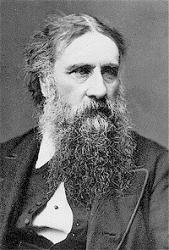Planning worship?
Check out our sister site, ZeteoSearch.org,
for 20+ additional resources related to your search.
- |
User Links
Person Results
Johann Sebastian Bach

1685 - 1750 Person Name: J. S. Bach Composer of "[The sun is gone down]" in Sing, Children, Sing Johann Sebastian Bach was born at Eisenach into a musical family and in a town steeped in Reformation history, he received early musical training from his father and older brother, and elementary education in the classical school Luther had earlier attended.
Throughout his life he made extraordinary efforts to learn from other musicians. At 15 he walked to Lüneburg to work as a chorister and study at the convent school of St. Michael. From there he walked 30 miles to Hamburg to hear Johann Reinken, and 60 miles to Celle to become familiar with French composition and performance traditions. Once he obtained a month's leave from his job to hear Buxtehude, but stayed nearly four months. He arranged compositions from Vivaldi and other Italian masters. His own compositions spanned almost every musical form then known (Opera was the notable exception).
In his own time, Bach was highly regarded as organist and teacher, his compositions being circulated as models of contrapuntal technique. Four of his children achieved careers as composers; Haydn, Mozart, Beethoven, Mendelssohn, Schumann, Brahms, and Chopin are only a few of the best known of the musicians that confessed a major debt to Bach's work in their own musical development. Mendelssohn began re-introducing Bach's music into the concert repertoire, where it has come to attract admiration and even veneration for its own sake.
After 20 years of successful work in several posts, Bach became cantor of the Thomas-schule in Leipzig, and remained there for the remaining 27 years of his life, concentrating on church music for the Lutheran service: over 200 cantatas, four passion settings, a Mass, and hundreds of chorale settings, harmonizations, preludes, and arrangements. He edited the tunes for Schemelli's Musicalisches Gesangbuch, contributing 16 original tunes. His choral harmonizations remain a staple for studies of composition and harmony. Additional melodies from his works have been adapted as hymn tunes.
--John Julian, Dictionary of Hymnology (1907)
Johann Sebastian Bach
George Macdonald

1824 - 1905 Person Name: George MacDonald Author of "The Sun Is Gone Down" in Songs for Little People Macdonald, George, LL.D., was born at Huntly, Aberdeenshire, Dec. 10, 1824, and educated at King's College, Aberdeen, where he graduated M.A., and from which he afterwards received the honorary degree of LL.D. For a brief time he studied for the Congregational ministry at Highbury College, London, and then became the Minister of the Congregational Church at Arundel, Sussex (1850-53). He afterwards preached for a short time to a small company at Manchester and Bolton. Relinquishing the ministry, he became Lecturer on English Literature at King's College, London, and ultimately gave himself up entirely to literary work. Dr. Macdonald has acquired a great reputation by means of his works of fiction, most of which were originally contributed to magazines, and the most notable of which are David Elginbrod; Robert Falconer; Alec Forbes of Howglen; and Annals of a Quiet Neighbourhood. He was some time Editor of Good Words for the Young, and wrote England's Antiphon for Macmillan's Sunday Library. His poetical works are:—
(1) Within and Without, 1855; (2) The Disciple, and Other Poems, 1860; (3) The Diary of an Old Soul (printed for private circulation), 1867"; (4) Exotics, a volume of translations from the German (most of which first appeared in the Sunday Magazine), 1876; and (5) A Threefold Cord, 1883, part of which previously appeared in his Works of Fancy and Imagination, 10 vols., 1871.
Most of his original hymns were contributed to Hymns and Sacred Songs for Sunday Schools and Social Worship, &c, published by Fletcher and Tubbs, Manchester, in 1855 (2nd. edition, 1856), and of which his brother, and the Rev. G. B. Bubier were the editors. The original hymns, which are signed "G. Macdonald," in this collection are:—
1. A quiet heart, submissive, meek. The Meek inherit the Earth.
2. Daylight fades away. Second Advent.
3. Father, I well may praise Thy name. Sunday Morning.
4. Father, these souls of ours have been. Blessed are the Pure in Heart.
5. If we were longing for the food. Blessed are they that Hunger and Thirst after Righteousness.
6. It was an awful hour that gave. Blessed are the Merciful.
7. Let Thy own voice, 0 Father, say. Blessed are they that mourn.
8. 0 Son of Man, Thy Name by choice. Blessed are the Meek.
9. Our Father, hear our longing prayer. Blessed are the Poor in Spirit.
Some of these hymns were afterwards revised by their author. The next two are from The Disciple, and Other Poems, 1860 :—
10. O God, Whose daylight leadeth down. Evening.
11. O Lord [God] of life, Thy quickening voice. Morning.
Dr. Macdonald's hymns are rich in ideas, but are touched with a mysticism which renders them a little difficult of apprehension. They are however of great value in setting forth truths rarely expressed in hymns, and are likely to grow in favour. [Rev. W. Garrett Horder]
-- John Julian, Dictionary of Hymnology (1907)
=======================
http://en.wikipedia.org/wiki/George_MacDonald
George Macdonald


 My Starred Hymns
My Starred Hymns

